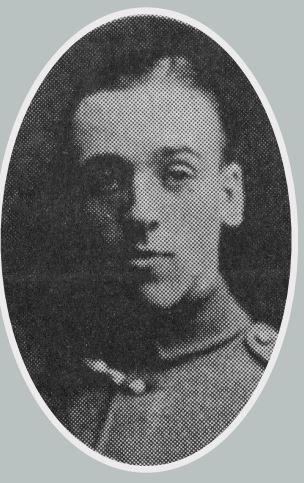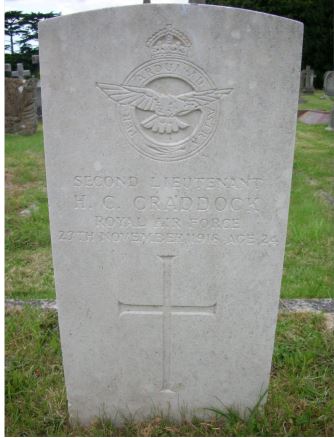Royal Air Force

Herbert Charles (Bert) Craddock, born on 10 October 1894, was the only son of Sergeant Major Charles Craddock Royal Engineers and Matilda Craddock, who kept the Sudeley Arms public house in Winchcombe Place, Cheltenham before the war.
Herbert was a well known local sportsman and a prominent member of Cheltenham Swimming Club. Prior to the war he had served with the Gloucestershire Hussars and Gloucestershire Yeomanry (having, at various times the numbers 1723 and 3775).
He went on to serve with the Royal Gloucestershire Hussars (RGH) Yeomanry in Egypt (from 20 April 1915) and Gallipoli, where he was received a gun shot wound to his right hip during the attack on Chocolate Hill on 21 August 1915.
Herbert appears then to have left the Army, only to be recalled into 3/1st RGH on 14 July 1916 and given the number 235894. His enlistment declaration notes his employment as a motor engineer and previous service of six years in the RGH. He served at home from re-enlistment until 2 September 1916 and with the Eastern Expeditionary Force in Egypt until 21 March 1918. He served as acting unpaid Lance Corporal from 24 January 1917.
On 22 March 1918 he was commissioned into the Royal Air Force and after a period with 23 Training Squadron he was posted to the Middle East on 6 July 1918.
He survived the war, but was killed in a flying accident at Rendcomb Aerodrome on 27 November 1918, age 24. The Bristol Fighter plane that he was flying developed engine trouble and he landed it at the far end of the runway. Without seeking help, he took off again but his engine cut out and the aircraft nose-dived into the ground from about 100 feet.
Lieutenant Craddock is buried in Cheltenham Borough Cemetery in the same grave as his sister Mrs G W ‘Kitty’ Hinton, who died of influenza on 5 November 1918. A CWGC headstone is now placed on the grave.
There are photographs of him and his funeral in The Graphic of 30 November 1918 and 7 December 1918 and also 18 September 1915.

Researched by Graham Adams 24 February 2012
(Acknowledgement to Leaving all that was dear – Cheltenham in the Great War by Graham Sacker and Joe Devereux)
